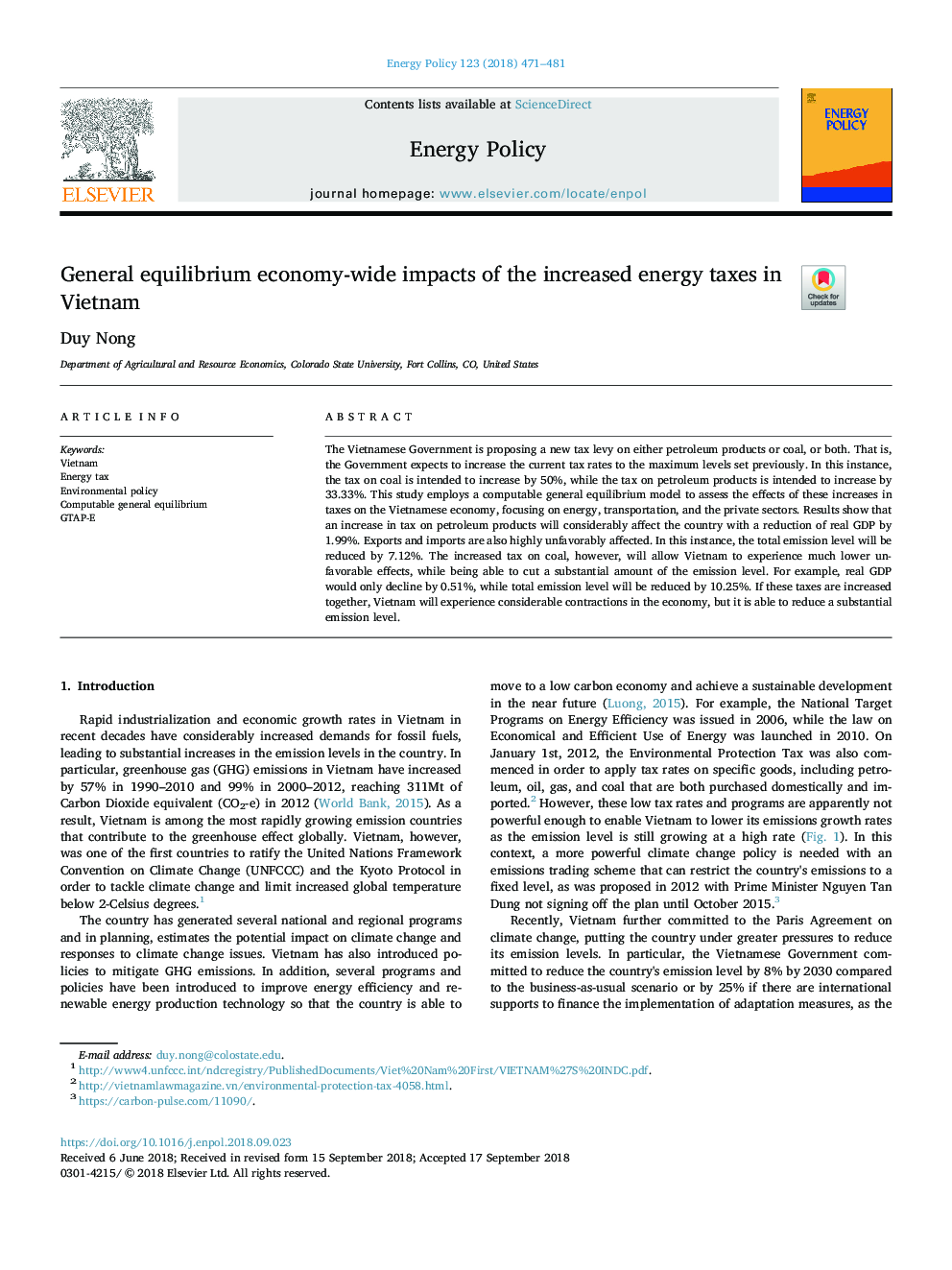| Article ID | Journal | Published Year | Pages | File Type |
|---|---|---|---|---|
| 11032278 | Energy Policy | 2018 | 11 Pages |
Abstract
The Vietnamese Government is proposing a new tax levy on either petroleum products or coal, or both. That is, the Government expects to increase the current tax rates to the maximum levels set previously. In this instance, the tax on coal is intended to increase by 50%, while the tax on petroleum products is intended to increase by 33.33%. This study employs a computable general equilibrium model to assess the effects of these increases in taxes on the Vietnamese economy, focusing on energy, transportation, and the private sectors. Results show that an increase in tax on petroleum products will considerably affect the country with a reduction of real GDP by 1.99%. Exports and imports are also highly unfavorably affected. In this instance, the total emission level will be reduced by 7.12%. The increased tax on coal, however, will allow Vietnam to experience much lower unfavorable effects, while being able to cut a substantial amount of the emission level. For example, real GDP would only decline by 0.51%, while total emission level will be reduced by 10.25%. If these taxes are increased together, Vietnam will experience considerable contractions in the economy, but it is able to reduce a substantial emission level.
Related Topics
Physical Sciences and Engineering
Energy
Energy Engineering and Power Technology
Authors
Duy Nong,
